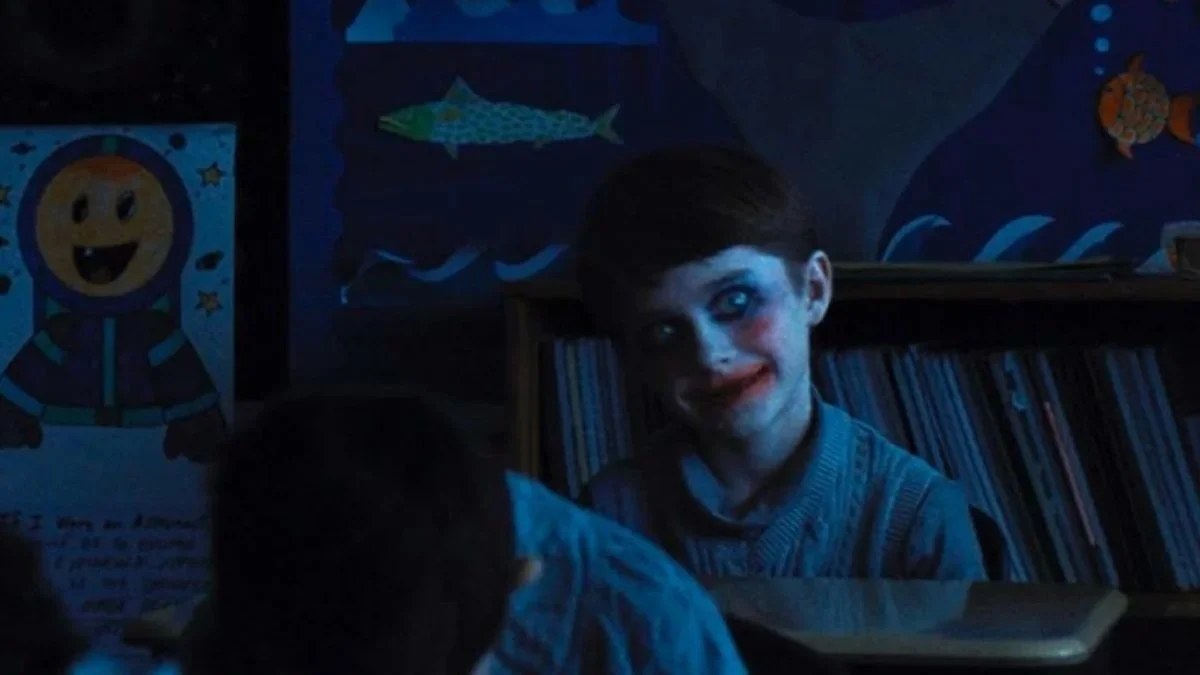Weapons Review: Empty Signals
Zach Cregger’s Weapons places a neat spin on a typical horror story, mixing up the standard ingredients of children in danger, a small town torn apart, and interconnecting storylines. But while Weapons, much like Cregger’s feature debut Barbarian (2022), effectively uses jumpscares and an unspooling mystery, it struggles with a sense of purposelessness.
Weapons opens with a voice-over from a child narrator introducing us to the central mystery in the movie: late one night, at 2:17 a.m., all but one child from the same elementary school class left their houses and disappeared. Months later, the 17 children are still nowhere to be found, and the town’s sense of civility is splitting at the seams. From here, Cregger splinters the movie into the perspectives of six different characters, in a move he compares to Paul Thomas Anderson’s Magnolia.
First up is Justine Gandy (Julia Garner), the new-to-town teacher who walked into her classroom one morning to find her student Alex (Cary Christopher) surrounded by 17 empty seats. At a community meeting held at the school weeks after the disappearance, Justine tries to deliver a nervous but empathetic address to the parents of the missing children before she’s booed off the stage by irate moms and dads who blame her for what happened—whether through witchcraft or some kind of insidious classroom indoctrination.
It’s an effective opening that both sets the stage for a creeping, twisty mystery and introduces our key characters. One of the parents leading the charge against Justine is Archer (Josh Brolin), a construction manager who sleeps in his missing son’s small bed each night and becomes consumed by his grief and anger. Principal Marcus Miller (Benedict Wong) places Justine on leave, both out of concern for her and a worry that the care she has for her students will be misconstrued by the community at large. Justine responds by buying bottles of vodka at the liquor store (where she runs into the unhoused drug addict James, played by Austin Abrams, loitering outside) and trying to cajole her ex Paul Morgan (Alden Ehrenreich), a police officer in town, to clue her in on updates on the disappeared children, before bucking all authority and trying to figure the case out on her own.
The stories of all six characters intersect as they fit in puzzle pieces of the mystery at hand, leading each inexorably to the evil at the center of the town. It’s fun to watch Cregger’s carefully constructed narrative unfold, especially as the personalities of his characters fan out. Justine’s appearance as a nervous and mousy teacher is belied by notes of erraticism and anger that Julia Garner expertly conveys, hiding an inner fierceness with a brittle smile. In turn, Paul at first seems like a foil to Justine’s manic energy, but a hangover and a jab from a used needle unravel his composure to the point of violence. And Abrams is a scene-stealer as he pops in and out of Paul and Justine’s storylines, before we watch his own comedic ineptitude prove crucial to the case of the missing kids.
But the freshness of Cregger’s framing doesn’t last. The start-and-stop nature of the various storylines interrupts any building tension, and wears thin as we continue seeing the same scenes through different character’s perspectives. And while each character is brought to life by their respective cast members and given nearly equal screentime, it’s still not enough to give any of them a complete storyline. Combined with a pedestrian reveal of the mystery at the heart of the film, Weapons ends up feeling more repetitive than horrifying.
As in Barbarian, Cregger purposefully signals at larger political and philosophical concepts without real follow-through. Dreams feature heavily throughout Weapons, with imagery like an assault rifle hovering menacingly in the night sky, blinking 2:17 on its side like an alarm clock. Cregger himself has stated he doesn’t understand what that particular symbol means, which he seems to consider effective in and of itself. But these gestures at a larger context make the movie feel even more unfinished.
Don’t get me wrong: modern horror can succeed without deconstructing the genre or positing a Big Idea, but the end of the movie should leave me thinking more than “What was the point of that?” Maybe next time, Cregger can balance his directing with some meaning, too.
If you enjoyed this article, please consider becoming a patron of Hyperreal Film Journal for as low as $3 a month!



Alix is the editor-in-chief for Hyperreal Film Journal. You can find her on Letterboxd at @alixfth and on IG at @alixfm.